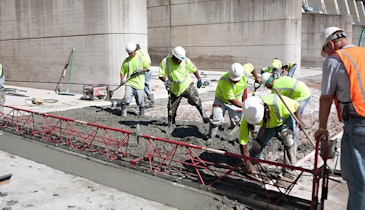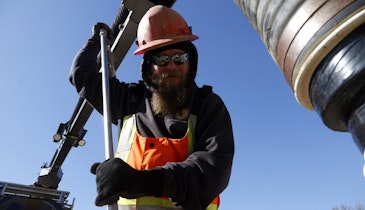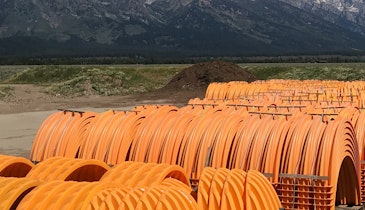Interested in Infrastructure?
Get Infrastructure articles, news and videos right in your inbox! Sign up now.
Infrastructure + Get AlertsAs I was editing the stories for this issue back in late April, there were several things going on in the municipal sewer and water world that struck me, and together they paint an interesting picture of the state of this industry.
First, Earth Day prompted many utilities to promote various initiatives related to clean water and conservation. Countless stories of municipal leaders talking to classes and organizing activities came through my Google Alerts. Attitudes and behaviors are difficult to change, especially in cases where people have grown to take things for granted. That’s why working with our youth and teaching them all about this resource and what goes into sending clean water to their taps is so important.
If you instill in our young people an appreciation for the resource, and energy and additional resources that go into delivering it to their homes, they might grow up with a different perspective on the importance of maintaining these systems and being wise with their water use. That can have significant implications for municipalities struggling with deteriorating infrastructure.
The second thing that struck me was the gathering of municipal water leaders in Washington, D.C. They were part of the Water Matters! Fly-In sponsored by the American Water Works Association and the Water Environment Federation, and aimed at educating lawmakers on the issues facing water utilities. The delegates also visited Capitol Hill to urge passage of legislation that would create a Water Infrastructure Finance and Innovation Authority to confront the growing water infrastructure challenge.
WIFIA would help address the staggering cost of repairing and expanding existing water infrastructure — an estimated $1 trillion over the next 25 years — by making low-interest federal loans available for large water and wastewater infrastructure projects, with little or no long-term cost to the federal taxpayer.
Every dollar spent on water infrastructure generates about $2.62 in the private economy, and for every job added in the water industry, over three and a half jobs are added to the national economy, according to estimates from the federal Bureau of Economic Analysis. If the federal government is in any way serious about repairing our infrastructure, putting more people to work and spending taxpayers’ dollars wisely, creating and sustaining WIFIA is something that must be done.
The third thing that struck me was a news story about a wastewater utility in my home state of Wisconsin. It was a long winter here, even by Wisconsin standards, and snow lingered longer than most were capable of appreciating. When the snow hangs on, and eventual spring rains combine with runoff from the thaw, storm and wastewater systems can be overwhelmed. This utility, and many others along the eastern side of the state, were dealing with heavy stormwater flows by releasing untreated wastewater into Lake Michigan.
What really struck me is the fact most people go about their daily business and never give these things a second thought, or never even realize what’s happening in the first place. Our infrastructure is failing. Sewage is being dumped into our streets and waterways. Municipal utility leaders are being forced to limp along without adequate funding to correct these problems and improve our communities. In the meantime, our lakes and rivers, our water wells and even our homes suffer. More needs to be done. Get your communities on board and let your voices be heard.
The stories in this month’s issue highlight utilities that are being proactive and progressive about improving their systems. I hope their successes can prove of value to you.
Enjoy this month’s issue.





